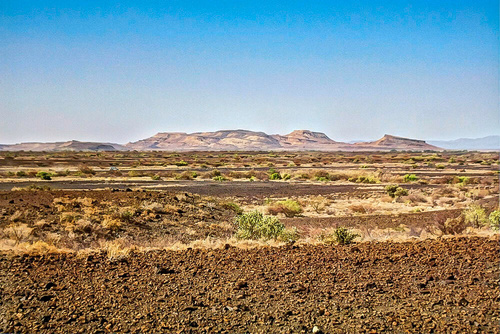Sibiloi NP & Koobi Fora
Sibiloi National Park
The “Cradle of Mankind” is located on
the wild, rugged shores of Lake Turkana and is home to important archaeological
sites including Kobi Fora where the fossils remains have contributed more to
the understanding of human evolution. A visit to Koobi For a museum shades more
light on this aspect as it shows the various hominid skull findings dating back
over a million years.
The area is characterised by semi-desert habitat and open
plains flanked by volcanic formations including Mount Sibiloi, where the
remains of a petrified forest can be seen.

Koobi Fora
Koobi Fora on the shores of Lake Turkana is a research base that is hope to permanent researchers, visiting scientist and students. The name Koobi Fora means " place of the commiphora" a Gabbra word for commiphora bush, which is common in the area.
This Koobi Fora site comprises approximately 700 square miles of fluvial and lacustine sediments representing a broadly continuous sequence of deposition from the Pliocene (5.0 million) to the Early Pleistocene (1.0 million) years old.

Petrified forest
The largest areas of petrified wood lying around Sibiloi are the remains of a once-great cedar forest, which covered the Lake's shores 7 million years ago. This is a concrete evidence of the climate change in the Lake Turkana Basin

